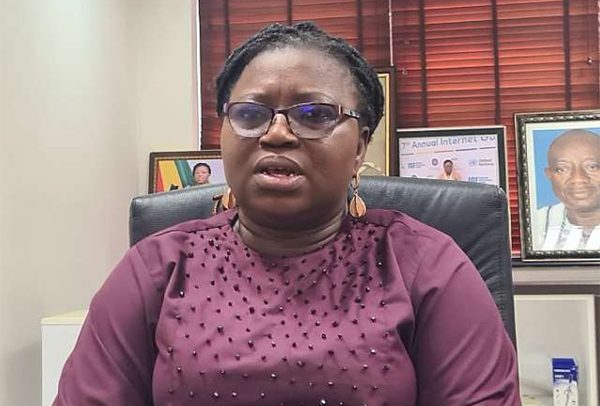Lydia Akanvariba Lamisi
Lydia Akanvariba Lamisi, the nominee for the position of Public Sector Reform Minister, has expressed her intention to utilise technology to drive transparency, accountability, and citizen engagement within the ministry, should she be approved.
Responding to questions during her vetting by the Appointments Committee, Mrs. Lamisi emphasised the importance of building on the work already accomplished by her predecessors.
She acknowledged the contributions of the former Senior Minister, who previously managed the Public Sector Reform Secretariat, and noted the ongoing efforts in the sector.
“I’ve seen the work that has been done at the Secretariat,” Mrs. Lamisi said.
“Some results have been achieved, while others have seen partial success or remain unfulfilled,” she added.
She affirmed her commitment to continuing the efforts in her own way, with a strong focus on harnessing technological tools to improve operations and governance within the state enterprises.
Mrs. Lamisi outlined her vision for a more transparent and accountable ministry, stating that technology would be a central element in making this a reality.
“I will leverage technology to ensure there is transparency, accountability, and open participation from citizens. There will also be greater engagement between the government and civil society,” she explained.
Plan
Mrs. Lamisi, who is also the Member of Parliament (MP) for Tempane, shared her thoughts on the upcoming budget and her ministry’s goals during a parliamentary session.
The question was raised by Tweneboa Kodua Fokuo, MP for Manso Nkwanta, who asked Lamisi what specific budget lines she expects to see allocated to her ministry, given its role in reforming the public sector. Lamisi was reminded that her ministry’s budget would come from the presidency, and was encouraged to provide insights into her expectations.
Mrs. Lamisi responded confidently, acknowledging that the budget is managed by the Finance Minister, but emphasised that she trusts the minister to ensure the necessary allocation for her ministry.
“I trust the Finance Minister to do a good job and ensure that my ministry, along with the presidency, will have enough funds to implement our programmes,” she said.
However, Mr. Fokuo raised concerns about the possibility that the budget might not reflect the ministry’s needs or priorities.
Mrs. Lamisi responded, reinforcing her belief in the communication that has occurred between the presidency and the Finance Minister.
“I don’t think His Excellency, the President, would appoint me as a Minister Designate without informing the Finance Minister of the necessary allocation for my ministry,” she assured.
Further questioning touched on the importance of performance-based accountability within the civil service.
Mrs. Lamisi expressed her strong belief in the need for a system of appraisals, motivation, and productivity.
“There must be performance appraisals and an effective monitoring and evaluation system,” she stated.
The nominee emphasised that rewarding employees based on performance is vital for driving the public sector’s productivity.
When asked about her practical plans for implementing such reforms, Mrs. Lamisi outlined a structured approach.
“We will focus on key performance indicators, provide a good working environment, and invest in training and capacity building,” she explained, aiming to foster an environment of growth and accountability across the civil service.
By Ernest Kofi Adu, Parliament House


